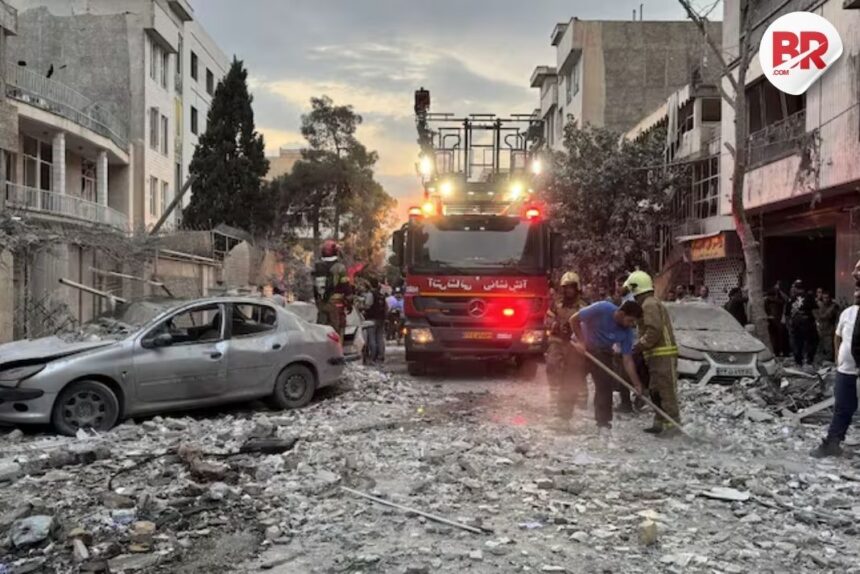
The Iran-Israel conflict is making headlines across the world — and for a very big reason. Missiles are flying, oil prices are soaring, and many fear this could become a larger war. Iran and Israel have traded attacks in a dramatic showdown that has already affected air travel, energy markets, and diplomatic talks
The Iran-Israel conflict is causing shockwaves across West Asia. Missiles are flying, oil prices are skyrocketing, and the world is on edge. Here are 5 big impacts you need to know.

1. Oil Prices Spike After Iran-Israel Conflict
The Iran-Israel conflict has pushed oil prices up. Brent crude jumped by more than $6 to reach a 5-month high of $78 per barrel. Iran produces 3.3 million barrels of oil a day and sells 1.5 mbpd. The main buyer is China, which imports 80% of Iran’s oil. The fear is that Iran might block the Strait of Hormuz — a key route for nearly 20% of the world’s oil. If this happens, prices could soar further.
2. Airspace Disrupts Global Flights
The Iran-Israel conflict has forced many flights to avoid Iran’s airspace. A video from Flightradar24 shows nearly no planes over Iran immediately after the attacks. Air India and many other carriers turned back their planes or made dramatic route diversions. The result? Longer journeys, more expenses, and disrupted schedules.
Also Read ISRAEL’S Deadly Blow! Iran’s Nuclear Sites BLASTED, Commanders ELIMINATED!
3. Nuclear Talks Between Iran and US “Dead”
The Iran-Israel conflict has put a deep freeze on Iran’s nuclear talks with the US. Iran called the US’s role “complicit” in the attacks and dismissed future negotiations. Iran’s Foreign Ministry said, “How can we negotiate when the US lets its allies attack us?” The breakdown in talks makes a diplomatic solution much less likely in the near future.
4. Multiple War Fronts Begin To Expand
The Iran-Israel conflict isn’t just about two countries. It’s spreading across borders. Iran-backed groups like Hezbollah in Lebanon and Houthis in Yemen are now involved. There are reports of Iranian attacks affecting southern Syria and Jordan’s skies. Regional powers like Saudi Arabia have condemned the attacks and called for peace — but the conflict shows no sign of slowing down.
5. Fear Of All-Out War Grows
If Iran and Israel continue exchanging attacks, it could spiral into a larger, all-out war. The US might become more involved, directly or indirectly, to help its ally Israel. Iran, meanwhile, may respond by blocking key oil routes or extending attacks through its proxies. The result could be a dramatic escalation — not just for the Middle East, but for the world.
Also Read Iran Fires Ballistic Missiles at Tel Aviv, Killing 3; Iron Dome Fails to Intercept | Watch












